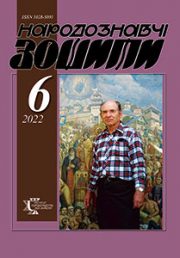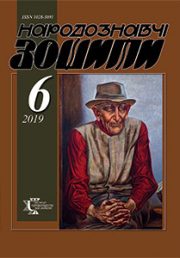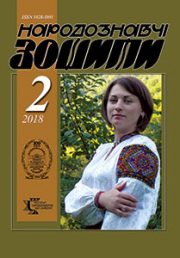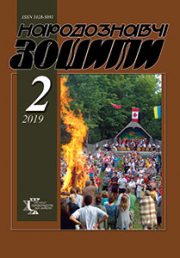The Ethnology Notebooks. 2021. № 4 (160), 767—774
UDK94(477)”1991/2021″:[328:001.89]
DOI https://doi.org/10.15407/nz2021.04.767
IGNORING SCIENCE: TO THE 30TH ANNIVERSARY OF THE RESTORATION OF UKRAINIAN STATEHOOD
PAVLIUK Stepan
- ORCID ID: http://orcid.org/0000-0003-0975-8099
- Doctor of History, Professor, Academician of NAS of Ukraine
- Director of the Institute of Ethnology of the NAS of Ukraine
- 15, Svobody Ave., 79000, Lviv, Ukraine.
- Contacts: e-mail: ina@mail.lviv.ua
Abstract. Problem statement. At the beginning of the modern history of Ukraine, government officials contributed to the prosperity of the scientific sphere, and the results were successful. However, it looked like half the battle. Scientists accumulated scientific capital, especially natural, scientific and technical direction, but the authorities failed to ensure the implementation of scientific ideas. It turned out (and it remains to this day) that scientists carried out the state order, and the customers, that is, the authorities, did not seek the way (for some reason) to implement them, that is, simply sabotaged, or on the grounds of short-sightedness, without realizing the mission of science in stable development, out of indifference, or even — do not allow the Lord — out of side interest.
The purpose of the article is to substantiate the research successes of the Institute of Ethnology of the National Academy of Sciences of Ukraine during the Ukrainian statehood. The importance of creative work of scientists of the institution is emphasized, its direct influence on the formation of aesthetic culture on the basis of national values of society.
Chronological boundaries of the study are 30 years since the restoration of Ukrainian statehood (1991—2021).
Novelty of the article. Attention was paid to the lack of adequate understanding by the authorities of a significant mission of humanities social science in the field of education, proper attitude and perception of the treasures of traditional folk culture.
Conclusions. The academic field of obscenity is degraded by the fact of underestimation and significant underfunding. The research methodology is based on historical review, theoretical analysis, systematization and generalizations of the author.
Keywords: Ukraine, ethnos, Ukrainian statehood, Academy of Sciences, Institute of Ethnology, research and development, academic field, socio-humanitarian sphere.
Received 29.07.2021
REFERENCES
- Metropolitan, Andrei Sheptytsky. (2015). In order. at. Vladimir Zinko. Our statehood. Lviv; Zhovkva: Missionary [in Ukrainian].
- Andrey Sheptytsky. (2009). About statehood. Lviv [in Ukrainian].







